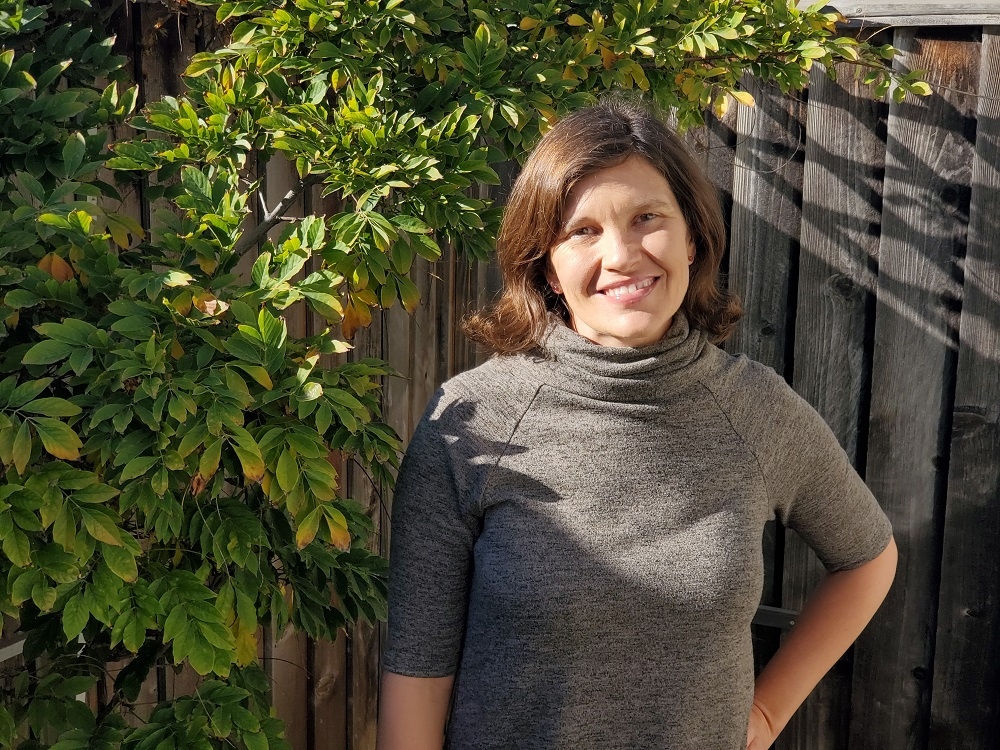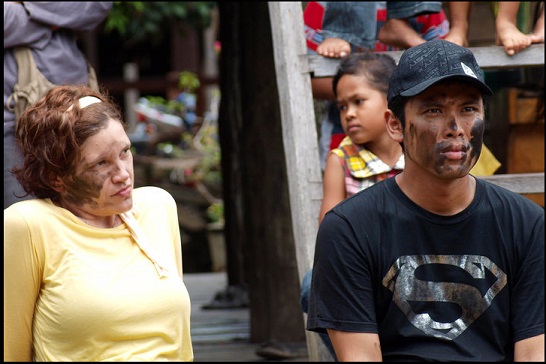Fall 2021 IEM and IPSS Practicum Participants
| by Dion Miller
Shelley Chen (on the right) worked with International Rescue Committee, IRC, in 2018 and two new participants have chosen to work with IRC this semester.
| by Jason Warburg

Years of international experience and a master’s degree from the Middlebury Institute taught Lacey Raak MAIEP ’08 a vital lesson: whether the change you are seeking is global, national, or regional, it often begins at the local level, sending ripples outward from there.
“In both a practical and a motivational sense, I use the international scope of my environmental policy degree to focus my work every single day,” says Raak, who is the sustainability director for California State University, Monterey Bay (CSUMB), and also a community volunteer currently serving as chair of the nearby city of Seaside’s Environmental Committee.
As an undergraduate at the University of Minnesota Twin Cities, Raak took advantage of an opportunity to study abroad in Mexico, an experience that fed into her decision to pursue an MA in International Environmental Policy at the Institute. While enrolled at MIIS, she traveled to Amman, Jordan, for a conference sponsored by Global Majority and stayed after for two months to work with Friends of the Earth—Middle East, an advocacy organization cofounded by Palestinian, Jordanian, and Israeli environmentalists. She found the latter “a deeply humbling experience. I saw both the benefits of US foreign assistance and intervention and the futility of it.” She describes visiting a “community park and garden” that consisted of a wire fence around an empty field with a USAID sign, an initiative that failed because the local community had no stake in its success. During the same period she coordinated more successful awareness events bringing Palestinian, Israeli, and Muslim leaders together to support the restoration of the Jordan River.
My experiences helped me realize that change—true change—starts at a local level, no matter where in the world ‘local’ might be.
After earning her master’s degree, Raak was selected for a Fulbright award as a researcher, spending 11 months in Indonesia with the Institute for International Education, a program of the U.S. Department of State. It was also her first year of marriage. “I had dreamed of this opportunity for years and was so grateful for a supportive partner. I jumped into learning the language, researching, meeting people, and getting comfortable with being uncomfortable.” Soon her perspective on the international nature of her work evolved. “I realized that I could make a difference for our shared environment by working in another country, but I didn’t need to. There was a lot of work to do right in my community. My experiences helped me realize that change—true change—starts at a local level, no matter where in the world ‘local’ might be.”
“In many ways Lacey modeled the unique IEP experience,” says International Environmental Policy (IEP) Program Chair Jason Scorse, “taking the knowledge and experience from her international travel and studies and bringing it back home to a local context.”
Back on California’s central coast, Raak spent four years working on climate and sustainability issues at the University of California, Santa Cruz, before accepting the position of director of sustainability at CSUMB in 2015. Once there, she advocated for the reorganization of the CSUMB Sustainability Office from Facilities into the Office of Inclusive Excellence, forming the first Office of Inclusive Excellence and Sustainability in higher education in the country. “While there are academic centers that merge these topics, to operationally structure the organization to reflect this intersection is unique. I would argue it is also critical to long-term success of addressing some of the biggest challenges of our time: environmental issues (like climate change) and social issues (like injustice).”

Raak’s passion for grassroots social change led her to take on the role of chair of the city of Seaside’s Environmental Commission in 2019. The committee’s work led the city to adopt a new ordinance drafted by Raak and her colleagues banning single-use plastic products within the city and requiring the use of compostable alternatives. “My MIIS education was instrumental in working through the development of that policy,” she says, a policy that may become a model for other local government entities in the region and beyond.
“I like to think of myself as on the ground floor of international environmental policy,” says Raak. “My decision to do this work was influenced by personal factors, but also by thinking about where I could make the biggest impact. The more I can accomplish locally, the more regional leaders, state leaders, and national leaders will feel pressure (or support) to act.”
Raak shares lessons learned along her path with new cohorts of Middlebury Institute students as the instructor for a weekend workshop at MIIS. “When I teach my workshop, I cover the difference between adaptive organizational change and command-control. Adaptive is networks, it’s messy, it’s people on the ground. Command-control can take the good ideas or policies that have been tested out at a local level and then spread them throughout an organization or governing body. True change-makers need to be able to navigate both types of structures.”
And a true change-maker is exactly what Raak is. According to Professor Scorse, “Lacey is a great example of what IEP students can achieve, bringing a deep commitment to justice and equity to solving complex and nuanced sustainability challenges. We are very proud of Lacey’s leadership and grateful to have her as an adjunct faculty member and mentor to current students.”
| by Dion Miller
Shelley Chen (on the right) worked with International Rescue Committee, IRC, in 2018 and two new participants have chosen to work with IRC this semester.
| by Jason Warburg
Bryce Bray MAIEP ’18 has been awarded a Boren, a Fulbright, and most recently an Institute of Current World Affairs fellowship, all of which are helping him continue to develop expertise and expand his professional network in his chosen field of climate policy.